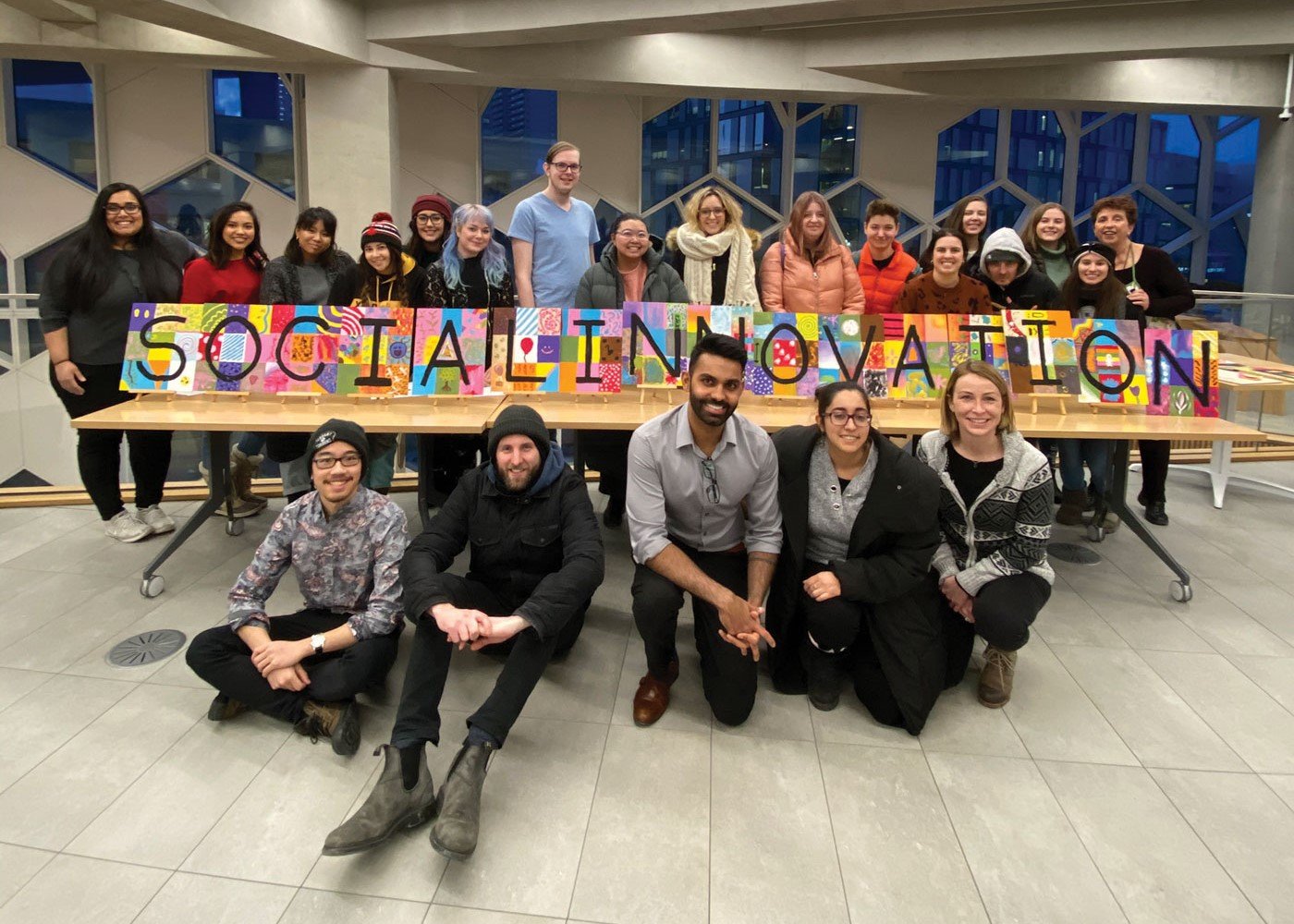
The LearningCITY Lab
A Home for Collaboration
Confronting this talent challenge extends beyond the capacity of any single government level, educational institution, sector, or employer.
To meet this challenge, the LearningCITY Collective envisioned the LearningCITY Lab.
The lab's mandate is to identify, resource, test, and scale innovations in skills development. To deliver this mandate, it is designed as a skunkworks project, removed from the structures and cultures of the current learning communities. The goal is to bring together innovative thinkers and doers from different learning communities, including talent seekers, talent developers, talent stewards, and learners, to collaborate and prepare Calgarians for the future.
The Pilot
In 2023-24, the LearningCITY Collective piloted this lab model; over eight months, the labLabsted over 40 events for 3700 professionals and 530 classes for 1000 learners.
With the support of community partners, including the City of Calgary, Oxford Properties, the Calgary Downtown Association, TalentED YYC, Pathways Alliance, and InceptionU, LearningCITY Lab 1.0 (Lab 1.0) opened in Bow Valley Square on August 1, 2023. Lab 1.0 was designed as a limited nine-month pilot.
Lab 1.0 was a 15,000-square-foot, highly flexible teaching, networking, and events space. The Lab 1.0 pilot hosts 1000 seats from Mount Royal University’s AccelerateU program. In addition, Lab 1.0 was home to over 70 community members, including Pathways Alliance. InceptionU, Neo Financial, and SAIT.
The pilot focused on four questions:
How can we facilitate increased collaboration across the learning system?
How can we integrate formal and informal learning into a seamless learning experience?
How do employers transition from consumers to co-creators of talent?
How can we increase interdisciplinary skills development to drive increased career adaptability?

The Pilot Lab by the Numbers
9-months
The length of the pilot from August 2023 to April 2024
15,200 Sq. ft
The size of the pilot Lab in Bow Valley Square
$1,000,000
The value of community financial and in-kind donations to support the pilot.
1000
The number of Mount Royal University and InceptionU seats hosted in the Lab
530
The total number of classes taught in the lab over nine months
70
The number of LearningCITY Lab Community members
16,000
The minimum number of incremental trips driven downtown by the Lab
41
The number of LearningCITY Lab events.
3800
The number of guests attending 41 LearningCITY Lab events
700
The number of surveys completed as part of the community-embedded learning study evaluating the impact of the Lab.

Skunk Works Principles
Skunk Works goes back to World War II when Lockheed Martin accelerated jet engine development for the US Air Force by relocating the project team to an abandoned distillery and providing it enormous autonomy. Similarly, Steve Jobs relocated Apple’s MacIntosh project team to an abandoned Texaco station in 1981 due to concerns that Apple’s corporate culture was impacting the team’s ability to innovate.
Today, this skunk works model has been widely adopted in business to accelerate innovation by removing a team from an organization’s bureaucracy and day-to-day culture.
Six principles drive a skunk works project:
The project must be fully independent and removed from day-to-day corporate oversight.
There must be mutual trust between project funders and the project team.
To stimulate divergent thinking, the project team must be diverse and interdisciplinary.
To maximize agility, the project team must be small.
There must be a limited hierarchy to empower individuals and promote open innovation.
To support replication and scaling, all processes must be rigorously documented.
The Next Steps
Following the pilot, the LearningCITY Collective is proceeding with a two-step plan to deliver a sustainable LearningCITY Lab. The first step will be to collaborate with community partners to deliver on the lab goals of system-level collaboration. The second step will be to secure partners to establish a permanent LearningCITY Lab as an independent hub for learning system innovation.
